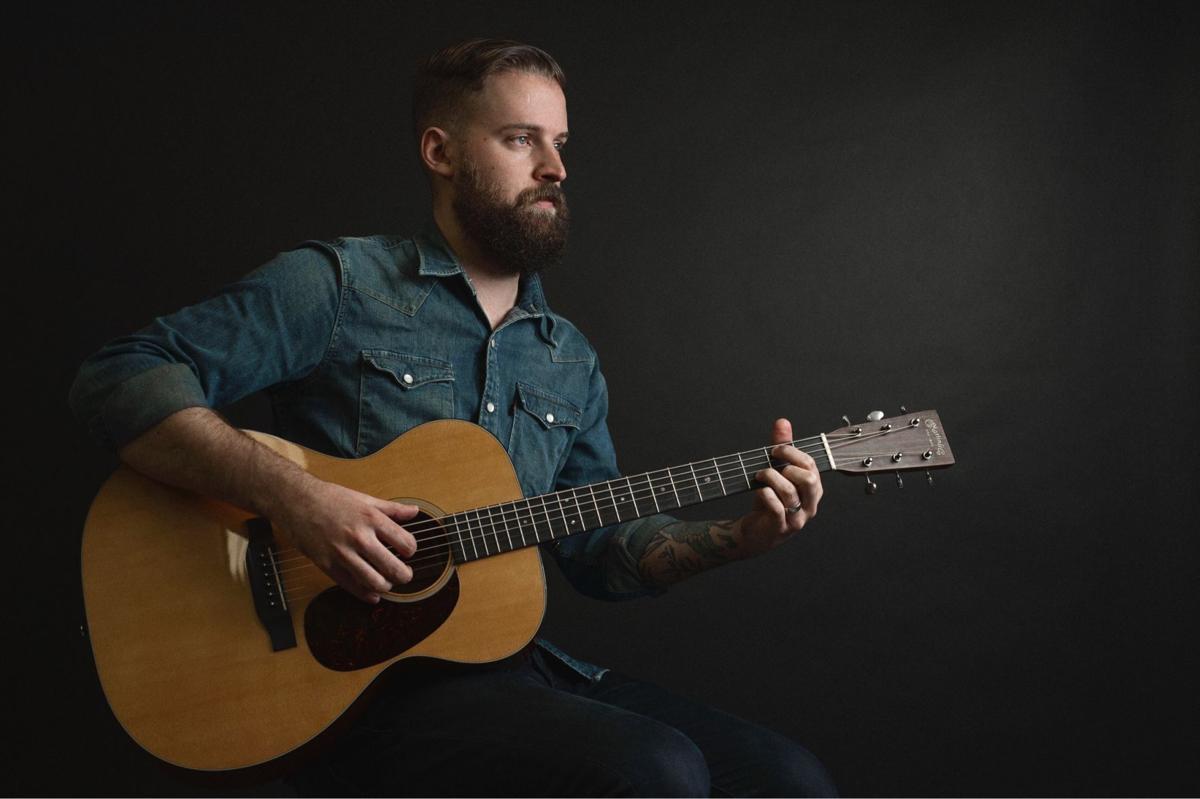Collaboration is essential when it comes to creating meaningful songs, says folksy crooner Sean Cox.
“Even though a lot of my work is done solo, I have so many incredible friends who help me shape the songs I write, whether through their musical talents or just by providing inspiration,” the Lancaster-based musician says.
Teamwork is so crucial to Cox he’s infused this underlying idea into every aspect of his newest project, Three Strands, which plays a show at Bean Tree Café on Friday.
“The name Three Strands comes from the book of Ecclesiastes in the Old Testament Bible,” he says. “The phrase says that ‘a cord of three strands is not easily broken.’”
A graduate of the music composition program at Eastern University in Pennsylvania, Cox had been playing with his Philly folk-rock quintet The Band of Rivals for five years when the idea for Three Strands struck him.
“A little over a year ago I started to realize that I had stockpiled quite a few songs that were outside of the style and sound of my then band,” he says. “They were more lyrically focused, acoustically driven and contemplative.”
Soon after, The Band of Rivals disbanded and Three Strands became Cox’s sole focus. In July of 2017, he released his first EP, “Letters to the Light.”
Cox is planning to make a new record in the next two years but, in the meantime, he released a new single, “Song Unsung,” last month. The song, he says, is about remaining aware and mindful of the tragedies and racial tensions that surround him.
“It was recorded with some friends in Seattle,” he says. “We recorded it live in one take and I'm really happy with the rawness we captured with the recording.”
How would you describe the music you play as Three Strands?
“Americana is a good word simply because I draw from a variety of American styles. Many of my songs are inspired by classic soul singers, like Van Morrison and Sam Cooke, as well as modern folk artists, like Amos Lee, Ray Lamontagne and Gregory Alan Isakov.”
How has your sound changed from what you were doing with The Band of Rivals?
“I would say my songs are a bit more stripped down. A lot of the arrangements on the debut EP were very trio-oriented. I'm excited to expand on that for future recordings and try to incorporate more instruments and textures on newer songs.”
What is the story in "Letters to the Light?"
“All the songs have a common theme. The characters in these songs are all looking for something meaningful to live for. For some it’s God, for others it’s love or wealth.”
I noticed at least one song, "Face of Narcissus," was reworked from when The Band of Rivals recorded it. Did you do that with other songs?
“Another song on that EP called ‘Solitary Man’ is about six years old. When I decided I wanted to rerecord these songs, I wanted to strip them back to their roots. Over time they had been molded and shaped in ways that I felt took away from their original intention. It was challenging to try and rearrange them in a fresh way, but I'm very happy with how they turned out.”
I get the impression you're a big reader since "Ash Filled Soul" was inspired by Thoreau's "Walden" and there's a different track which pulls from Neitchze's work.
“Literature does play a big part in what gives me inspiration and ideas for songs. Lately I've been writing a bit more from my own experiences and not as much from retelling others' work. At first it felt [exposing] and uncomfortable but I'm noticing that people are really connecting with my newer, more emotional songs.”
Do you often find yourself pulling from other sources for inspiration?
“I find literature, poetry and even movies as great ways to get the creative juices flowing in myself. If I read a great book or watch a beautiful[ly] shot film, I get inspired to create from it.”
What drives you as a songwriter?
“Talking to people and hearing that a certain song connected with them is what drives me. I love how I can write a song with one narrative but listeners can take that song and give it an entirely new meaning for themselves. That, to me, is the power of music. It can reach across any dividing lines, race or culture.”
What's the message you hope to share through your music?
“I hope to encourage people that it's OK not to have it together. That we are free to explore and learn what life means for ourselves. I also want to spread a message of love and tolerance for each other that I think we all need much more of nowadays.”

